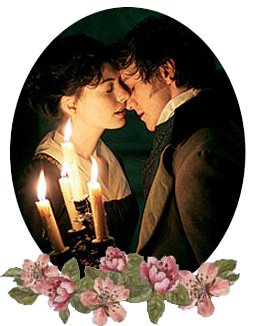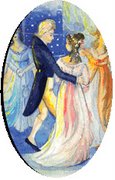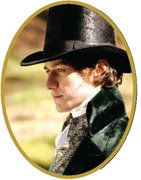Jane Austen Quote of the Week 256
 |
| Ars Rhetorica, from Vimeo |
 |
| Ars Rhetorica, from Vimeo |
Posted by
Icha
at
21:40
0
comments
![]()
Labels: Other letters, Quote of the Week
 |
| Sir Walter Scott in 1822 by Henry Raeburn |
Posted by
Icha
at
21:48
3
comments
![]()
Labels: Other letters, Quote of the Week
Tomorrow (16th December) will be Jane's 238th birthday.
There are so many quotes to pick from in order to celebrate Jane's birthday and mine might seem to be a strange choice, both because it has been used before on the blog but also because it doesnt seem to be birthday related. I love it though!
This quote is taken from chapter 5 of Mansfield Park when Mary is being spoken to about marriage.
"If one scheme of happiness fails, human nature turns to another; if the first calculation is wrong, we make a second better: we find comfort somewhere."
I think that this highlights Jane's philosophy; she recognises bad luck and events that occur in life which are out of our control but she also sees hope and gives us the courage to seek comfort in a better plan. These words are very uplifting for me and form wise advice from someone who, I believe, lived a honest, thoughtful and inspiring life.
Happy Birthday Jane!
Posted by
Rachel
at
02:55
3
comments
![]()
Labels: Mansfield Park, Quote of the Week
 |
| Our James McAvoy as dear Tom Lefroy in 'Becoming Jane' 2007 |
Posted by
Icha
at
11:28
0
comments
![]()




We are rolling a petition to reprint Nadia Radovici’s 1995 book titled ‘A Youthful Love: Jane Austen & Tom Lefroy?’ that is currently out of print. Please sign for the Radovici's Jane Austen & Tom Lefroy Petition and spread the words! Thanks a lot!



Jane Austen was born on

Cast:
Anne Hathaway - Jane Austen
James McAvoy - Tom Lefroy
Julie Walters - Mrs. Austen
James Cromwell - Revd. George Austen (Jane's father)
Maggie Smith - Lady Gresham
Anna Maxwell Martin - Cassandra Austen
Joe Anderson - Henry Austen
Lucy Cohu - Eliza de Feullide
Laurence Fox - Mr. Wisley
Philip Culhane - George Austen (Jane's brother)
Ian Richardson – Judge Langlois
Leo Bill – John Warren
Jessica Ashworth – Lucy Lefroy
Eleanor Methven – Mrs. Lefroy
Michael James Ford – Mr. Lefroy
Sophie Vavasseur – Jane Lefroy
Helen McCrory – Ann Radcliffe
Julian Jarrold - Director
Graham Broadbent, Robert Bernstein, & Douglas Rae - Producer
Adrian Johnston - Soundtrack
Kevin Hood & Sarah Williams - Screenplay writers
Eigil Bryld - Cinematography
Jane Gibson - Choreography
Eimer Ni Mhaoldomhnaigh - Costume
Gail Stevens & Gillian Reynolds - Casting




Jon Spence,


McAvoy knew his portrait of Tom could only come alive with the right Jane, and he found Anne Hathaway almost supernaturally suited for the part. “I don’t think we could have chosen anyone better to play Jane Austen," he says.

Jane Austen’s greatest love story was her own













‘I’m yours, Jane, heart and soul!’
~ Tom Lefroy to Jane Austen, ‘Becoming Jane’

Anything is to be preferred or endured rather than marrying without affection – JA,

Nothing can be compared to the misery of being bound without Love, bound to one, & preferring another – JA,



To be so bent on marriage, to pursue a man merely for the sake of situation – is a sort of thing that shocks me.





The film Becoming Jane has given us an image of Jane Austen that liberates our imagination. I envy readers of my book who come to it with Anne Hathaway’s image of Jane in their mind’s eye. You will not have to struggle against the image Cassandra created to see the Jane Austen who was young and pretty, lively and in love. Anne Hathaway’s skilful portrayal of Jane Austen in Becoming Jane shows that art can have as much power to bring us closer to the truth as facts themselves can.
Jon Spence,